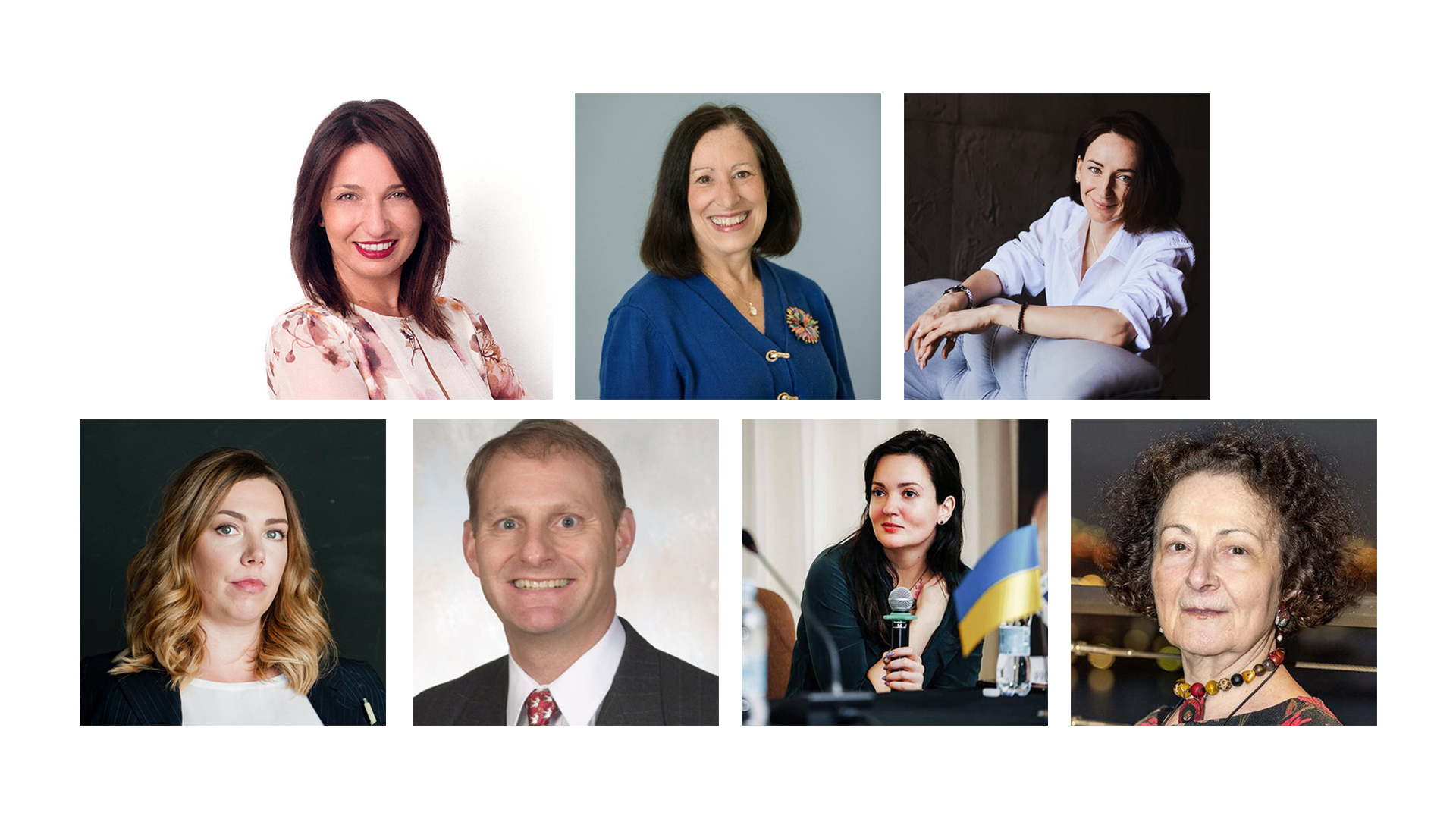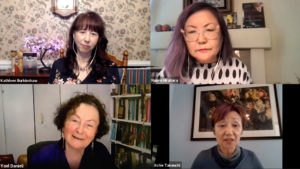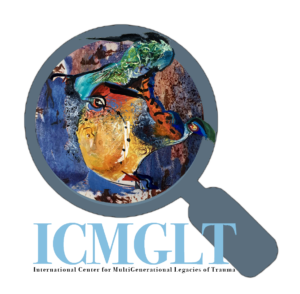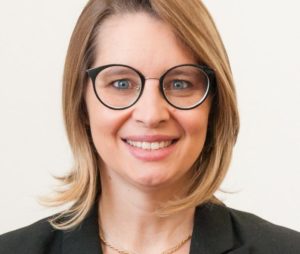Webinar
Monday, 8 January 2024, 1:00-3:00PM EST / 6:00-8:00PM GMT / 7:00-9:00PM CMT / 8:00-10:00PM EET & IST
This International Center for the Study, Prevention and Treatment of Multigenerational Legacies of Trauma webinar is held in collaboration with Project Sunflowers. It is second in a series, following a primarily conceptual introduction to reparative justice. Here we answer its call for specialized training for professionals and others engaging with victim/survivors of war’s massive trauma to help heal and protect both victim/survivors and themselves from re/traumatization of sharing traumatic experiences. This international multidimensional, multidisciplinary webinar precedes the teaching/training process of potential interviewers about some of the main populations they would collect evidence from or about. These include (deported) children and their family members, victims of conflict-related sexual violence, torture victims, refugees, prisoners of war and members of the military.
English Version
Ukrainian Version
Welcome:

Ewa Hofmanska, PhD
President of Foundation Sunflowers, former legal expert of the Trust Fund for Victims of the ICC, with a PhD in law, specialized in labour law; academic with national and international practical experience, including the Trust Fund for Victims of the International Criminal Court in The Hague. She is the President of the Executive Board of the Foundation Sunflowers, which implements the Project Sunflowers, an international initiative, which was created ad hoc just a few days after the Russian invasion of Ukraine started in February 2022.
Speakers:

Robin Gurwitch, PhD
Professor at Duke University Department of Psychiatry and Behavioral Sciences and the Center for Child and Family Health, Dr. Gurwitch is an expert in understanding and supporting children in the aftermath of trauma, including terrorism, crisis and natural disaster, improving outcomes and increasing resilience. She has been a member of the United States National Child Traumatic Stress Network since its inception in 2001. She is also one of only 22 Global Trainers in Parent Child Interaction Therapy and co-developer of CARE (Child Adult Relationship Enhancement).

Maryna Syrytsia, MSc
A teacher at the Department of Military Psychology at the Military Institute Taras Shevchenko, National University of Kyiv, Maryna is a psychotherapist at the Aurora platform for survivors of the war-related sexual violence that was initiated by the Ukrainian government and supported by United Nations Population Fund. She specializes in psychological support for people who have suffered from violence, torture, captivity and difficult family situations.

Iryna Frankova, M.D., PhD
A post-doctoral researcher at the department of clinical, neuro- and developmental psychology, Vrije Universiteit Amsterdam and senior researcher at the ARQ centrum 45, the Netherlands, Dr Frankova is a chair of Traumatic Stress Network, European college of Neuropsychopharmacology and an assistant professor at the Department of Medical Psychology, Psychosomatic Medicine and Psychotherapy of Bogomolets National Medical University (BNMU), Kyiv, Ukraine. She is the Chair of the ICMGLT Ukraine Working Group.

David M. Benedek, M.D.
Dr. Benedek is Professor of Psychiatry & Neuroscience, and Associate Director, Center for the Study of Traumatic Stress, Uniformed Services University. He is Past President of the Society of Uniformed Service Psychiatrists, past representative to the APA Assembly, and a Distinguished Life Fellow of the American Psychiatric Association. He retired from the U.S. Army in 2021 after nearly 34 years of active duty service including deployments to Bosnia, Croatia, Cuba, Iraq, and Kuwait.

Veronika Plotnikova, PhD
Head of the Coordination Center for the Support of Victims and Witnesses of the Ukraine Prosecutor General’s Office, Dr. Plotnikova has been working in the prosecutor’s institutions’ system for over 15 years, leading the specialized units for implementing human rights standards into the prosecutor’s services. She co-authored the practical commentary on the Code of Professional Ethics of Prosecutors, is a trainer in the Training Center of Prosecutors of Ukraine, and national expert of projects of Council of Europe.
Moderator:

Dr. Yael Danieli
A Clinical psychologist, traumatologist, victimologist and psychohistorian, Dr. Danieli is Founder and Executive Director of the International Center for the study, prevention and treatment of MultiGenerational Legacies of Trauma; Director, Group Project for Holocaust Survivors and their Children and Past-President, International Society for Traumatic Stress Studies.




